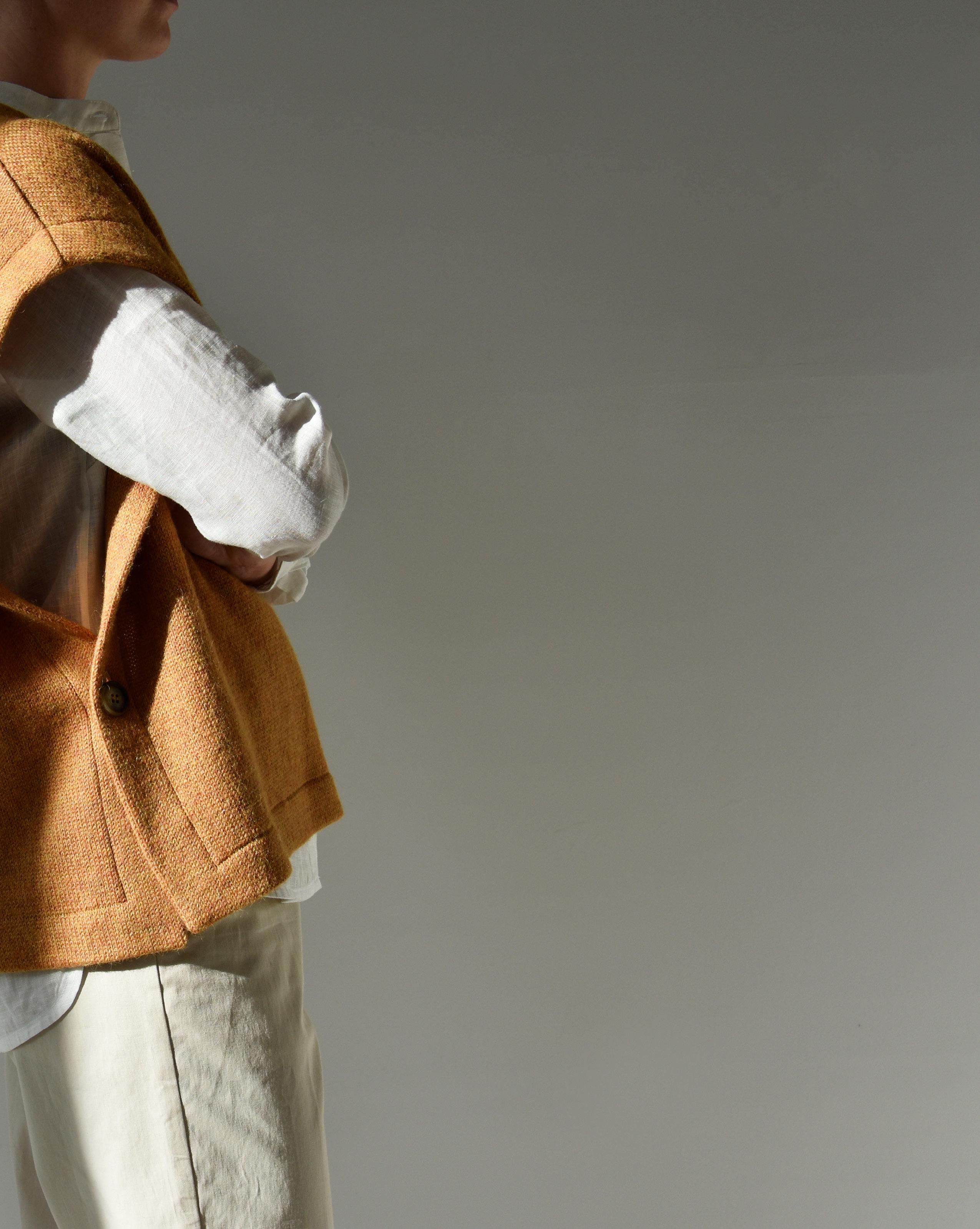
4 minute read
Aurora Verksted
from Localfolk Oslo
by Localfolk
Collective arts for people and the planet
Aurora Verksted was founded to give people with disabilities care and meaningful employment in design, crafts, fashion, and art. Over thirty years later, the social cooperative remains dedicated to its people—and to creating quality, sustainable products.
Advertisement


“We started the enterprise over thirty years ago, at a time when people with disabilities were largely invisible and weren’t really given opportunities for growth. The work they would be offered—if they were offered any—was repetitive and fairly unrewarding. We instead wanted to provide opportunities for people with disabilities to be professional adults—proper workers with dignity and recognised skills.”
Today, Aurora Verksted designs, produces, and sells high-quality crafts, clothing, jewellery, and ceramics. These are designed and created in the brand’s studio space in Bærum, Greater Oslo, and then sold in the city centre at their storefront, Respekt/Aurora, in Majorstuen. Yet, the social cooperative is still largely doing what it was set up to do in 1987: to provide meaningful work for people with severe disabilities.
We’re talking to Trine Dreyer, Aurora’s founder and creative director, and Anne Gro Fjeldheim, who left a career in the fashion industry to join the social cooperative as a design manager. When we sit down to chat, they tell us how incredibly proud they are of what the cooperative has achieved.
“For the people with disabilities we work with, for their families, and for all our staff and colleagues, it’s been lifechanging,” Trine tells us. “That’s all there is to say about that.”
So, what’s behind Aurora’s success?
“We’re both an accredited care provider and a design brand that’s recognised for its quality and values,” Anne Gro explains—highlighting Aurora’s unique business model. “But mostly we’re a great place to work. We’ve often used the words ‘love’, ‘creativity’, and ‘responsibility’ to explain what we do. ‘Love’ is what gives us the energy for our care work, ‘creativity’ drives our design and business growth, and ‘responsibility’ is the value that brings these together.”



Yet, alongside their commitment to these values, there is something else that has contributed to Aurora’s success. That’s timeliness and foresight.
“When we started Aurora, ideas of sustainability and social responsibility were not really in vogue,” Trine tells us. “But suddenly it feels that we speak and people listen. These days, fast fashion is in trouble, ideas of craft and creating quality are more popular than ever, and everyone is talking about the environment.
“This is what we’ve been doing for years!” Trine laughs. “Too many businesses tell you how good they are, but we’ve really been doing it since the beginning.”
Over the decades, all of Aurora’s business decisions have been informed by the brand’s values of “people and planet”. Before 2001, Aurora was simply a care provider for the Bærum municipality. But, in Trine’s words, “to be regarded as a true place of work, we needed to be something more—we needed to reach another level.” And so Trine relaunched Aurora as a social cooperative mutually owned by the colleagues.
Since then, the team has refined its design techniques to make products that would last, and whose design and craftsmanship would respect and adapt to the abilities of the workers. “We work with our colleagues’ abilities, not their disabilities,” Anne Gro says, “and so we design all of our pieces to reflect and enhance what our colleagues can do.”
Ten years later—now with over a hundred staff—Aurora opened its shop Respekt/Aurora in central Oslo. Then, in 2015, the team launched a slow fashion line, Studio Re-, that focuses on sustainable womenswear. This signalled a big change for the cooperative as, for the first time, some of Aurora’s products were not made in-house. Rather, their supply chains now stretched from stockists of Harris tweed and Liberty cotton in the UK to socially responsible producers in Romania and Vietnam.


“Across the supply chain, quality, professionalism, and sustainability are the focus,” Anne Gro says. “Many people hear what we do and assume we produce things that don’t require much skill. But that’s not us at all. Across all of our work—from our workshop to our outsourced production— we need to focus on quality, so that we can all be proud of what we do.”
We ask Trine and Anne Gro what’s next for Aurora. Their response is a characteristic mix of business vision and environmental consciousness.
“Before I retire, I’ve dreamed of cooperating with other like-minded businesses abroad, maybe in London—to recognise that wonderful shared northern Atlantic tradition we have between Norway and the UK,” Trine says. “And I’d love to see local textile production become reestablished across Norway too.”
Yet, business expansion is not their first priority.
“It’s not good for the environment to be too big,” Anne Gro says. “Instead, we’d like to be recognised for what we do. So, firstly, we’ll take it slowly and we’ll grow and we’ll do good things. And we’ll just keep on working to better ourselves, our work, and our world.”
Instagram / @auroraverksted aurora-verksted.no











